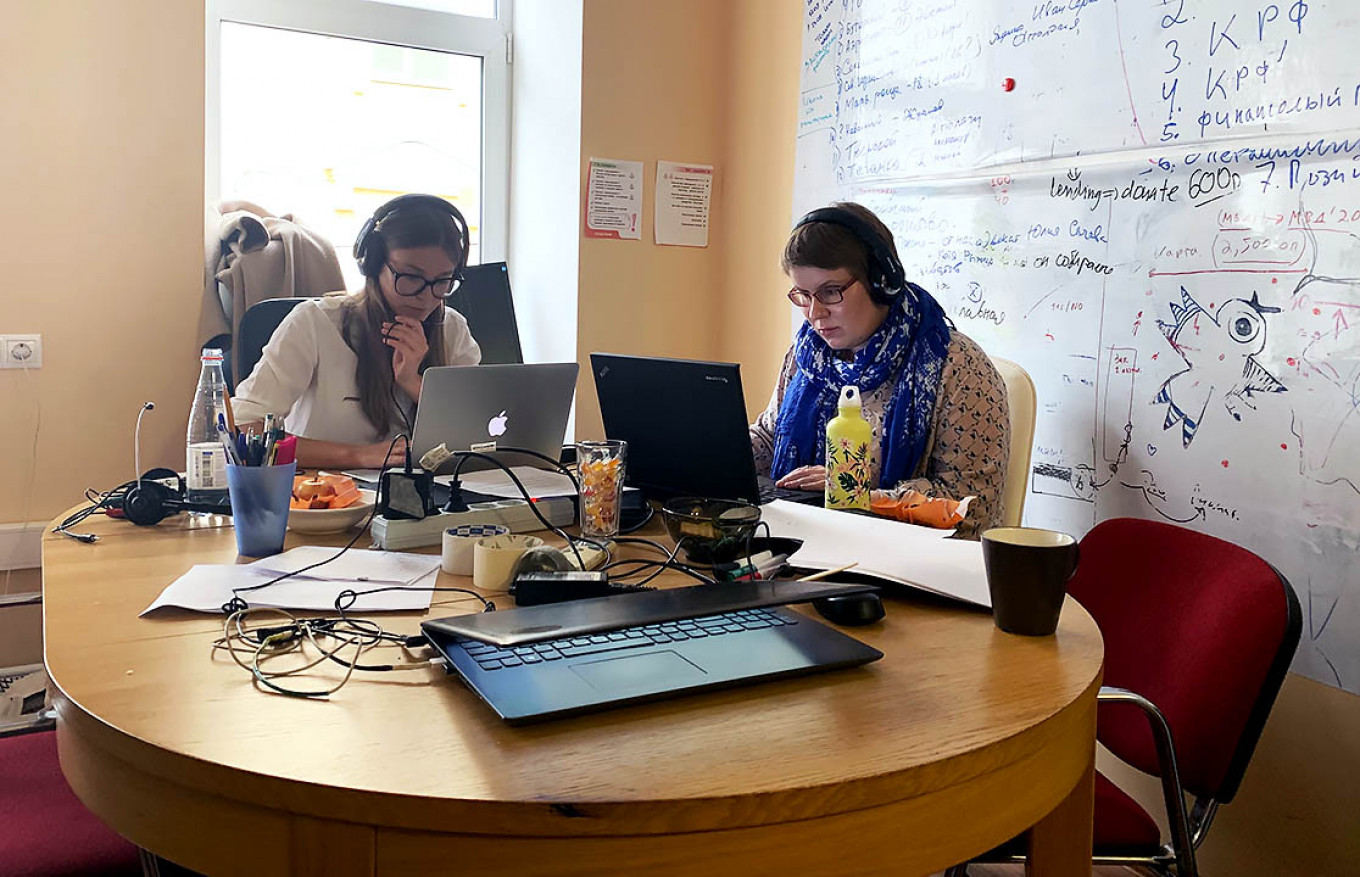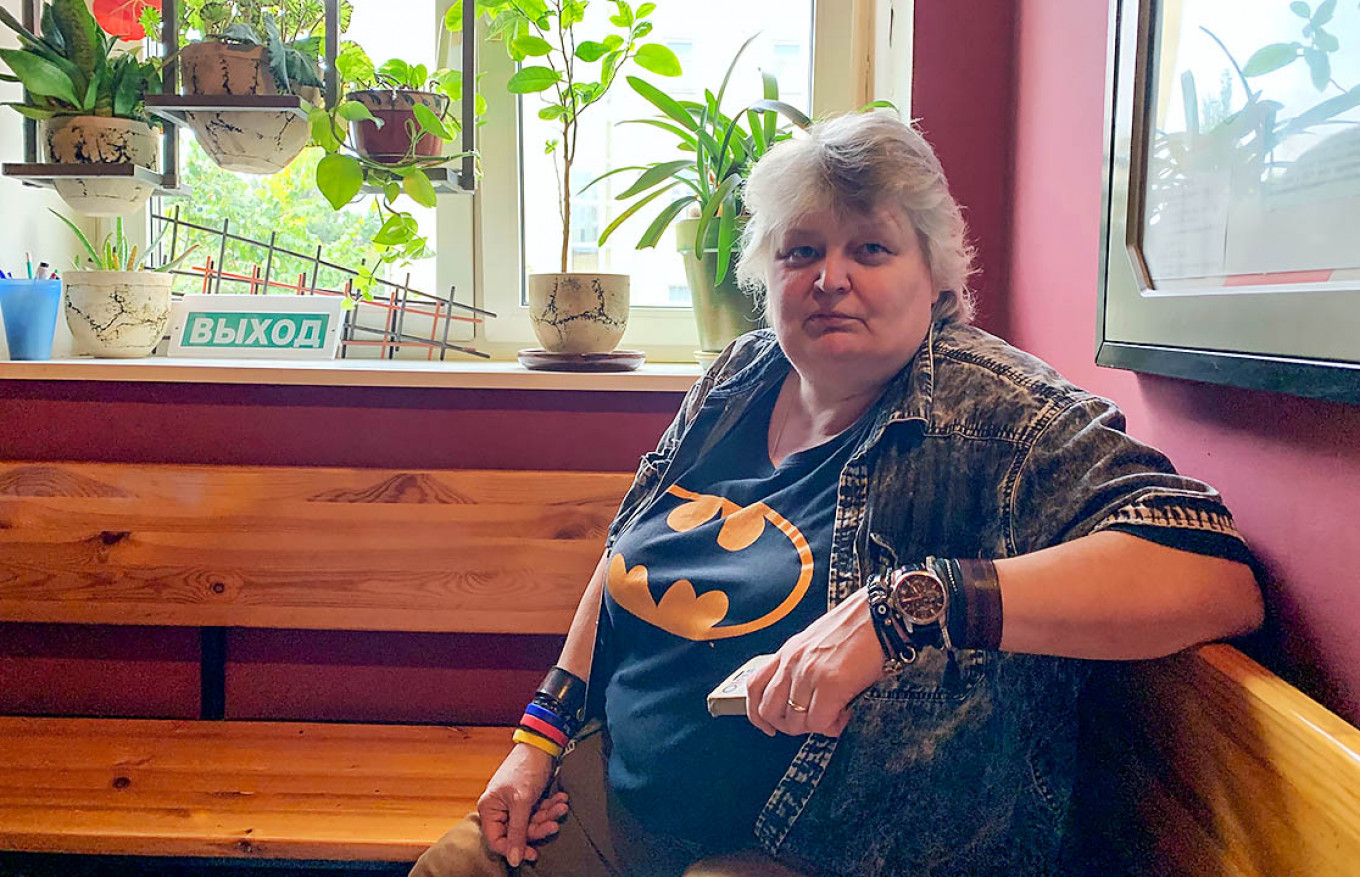The first thing Leonid Treskunov did after he was detained during a protest in Moscow on June 12 was call the OVD-Info police-monitoring group.
“I googled their hotline number and called them pretty much as soon as I was in the police wagon,” said the 33-year-old Muscovite. “I didn’t know what to do in a situation like that. They walked me through it.”
OVD-Info, which was founded in December 2011 as the Bolotnaya protests against Vladimir Putin were gaining steam, keeps count of detained protesters who contact it through its hotline and automated bot on the popular Telegram messenger. The group then publishes regular updates on its website and social media accounts about those detained and those who sustained injuries during the arrests. It also helps them find legal support.
According to OVD-Info’s count, Treskunov, who was handed a fine of 10,000 rubles ($153) last Thursday for participating in an unauthorized demonstration, was one of 2,900 protesters detained during three large rallies in Russia’s capital this summer that were not approved by the authorities. Two of them took place over the past two weekends.
“We haven’t had time for a break,” Alla Frolova, OVD-Info’s coordinator, said in an interview at the group’s offices in central Moscow this week. “As soon as we finished dealing with June 12, the latest protests began.”
 OVD-Info currently has more than 150 volunteers. It received another 300 applications over the past week. Evan Gershkovich / MT
OVD-Info currently has more than 150 volunteers. It received another 300 applications over the past week. Evan Gershkovich / MTProtests have sprouted across Russia over the past year, sparked by dissatisfaction over declining living standards that have sent the ratings of President Putin and the ruling United Russia party spiraling downward. The authorities, in turn, have clamped down in record numbers.
The first big wave of arrests came when police detained more than 500 people during a June 12 protest against police impunity following the arrest of investigative reporter Ivan Golunov on trumped-up drug charges. They then hauled in more than 1,300 and 1,000 during the recent back-to-back weekend demonstrations against a decision by election officials to bar opposition candidates from running in city council elections.
The total over the two-month period in Moscow falls about 500 short of last year’s across the entire country, according to Alexei Glukhov, the head of the legal department for Apologia of Protest, a group defending the right to peaceful protest in Russia.
The sheer numbers have put a strain on OVD-Info.
Frolova, who is 54, said she has been sleeping for about three hours a night over the past several weeks, while the office has been staffed around the clock. Wearing a T-shirt with the Batman symbol printed across the chest, Frolova explained it helps remind her that the job is about “saving people.”
“We have to keep up with the authorities,” she said. “We don’t have a choice.”
 Alla Frolova, OVD-Info’s coordinator, says the work is about “saving people.” Evan Gershkovich / MT
Alla Frolova, OVD-Info’s coordinator, says the work is about “saving people.” Evan Gershkovich / MTThe watchdog, which is funded by donations, is staffed by 27 full-time employees and upward of 150 volunteers. The group says it has received 300 new applications over the past week, but that it won’t be able to onboard new volunteers until the current wave of protests calms down.
At OVD-Info’s offices on Monday afternoon, volunteers in headsets dealt with a constant stream of calls coming over the hotline. Their responses ranged from answering questions on how to correctly fill out a legal form to explaining the implications of a specific charge. Others sifted through messages arriving via the Telegram bot.
Frolova, who hadn’t checked the bot messages since the latest protest began Saturday afternoon, showed The Moscow Times the chat on her Telegram. It had nearly 11,000 unread messages. Then she received a call with an update that two protesters for whom OVD-Info had found attorneys had each been sentenced to 15 days in jail.
“If the day of the protest is about keeping track of and finding everyone who was detained, the days that follow are about making sure everyone has the right help,” she said.
“And then it begins all over again,” she added. “It’s like groundhog day.”
As protests have become more frequent in Russia and the ensuing police crackdowns stronger, OVD-Info has become ingrained in the consciousness of both protest attendees and observers. When one Twitter user on the eve of the latest demonstration for fair elections asked what they should bring to the protest, others responded that they should make sure they had OVD-Info’s number in their phone.
“They’re the heroes of our time,” said Yekaterina Schulmann, a political scientist and member of Russia’s Presidential Human Rights Council, though she noted that the group is not alone.
“Their work is developing a growing structure of citizens — both institutions and individuals — working together with enthusiasm to help protesters.”
Schulmann said the structure includes organizations like Glukhov’s Apologia of Protests and the Agora human rights group, both of which provide legal support for detained protesters.
The movement also includes Telegram chats like “Delivery.Moscow,” started by three activists during the spring 2017 protests against corruption led by opposition politician Alexei Navalny. The chat now has nearly 3,000 volunteers that provide essentials — toothbrushes and toothpaste, wet wipes and toilet paper, bottles of water and crackers — to those detained for up to the maximum 48 hours.
“In 2011 everyone was asking us why we needed to start a group like this, but already then it was clear to us what would happen and why we would be needed,” said Grigory Okhotin, one of OVD-Info’s co-founders. “There are strong ties between protesting and repressions. The more active civil society becomes, the more the repressions increase and the more people have a demand for us.”
Okhotin added that a big part of OVD-Info’s work is educating Russians on their legal and constitutional rights so they can fend for themselves and not rely on groups like his. He believes that work is paying off, even if crackdowns are increasing.
“We see that rights consciousness has grown very strongly since our founding,” he said. “The number of initiatives like ours that are popping up and the readiness of people to fight for their rights even if they know they will lose — all of this is growing.”
Glukhov sees Apologia of Protest’s work in the same vein. In addition to recruiting all sorts of attorneys who in their day jobs work in tax or real estate law to help protesters pro bono, the group aims to educate a growing group of activists capable of taking on authorities determined to snuff out dissent.
“We can’t stop this machine,” Glukhov said. “But if more and more people understand what its limits are, what we can do is try to put spokes in its wheels.”
